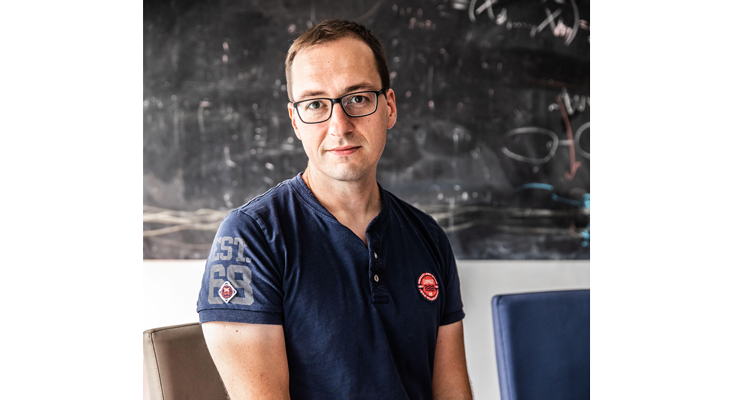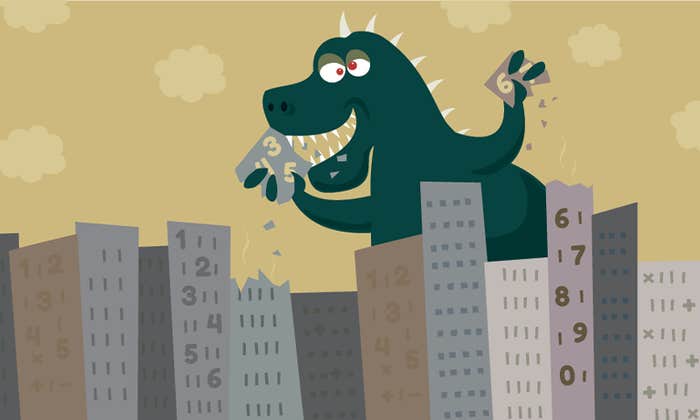Last year news came that Indian billionaire Gautam Adani was set to exploit Australian coal reserves. The deal, The New York Times reported, was the result of a successful campaign by the Adani Group, a vast conglomerate with diverse interests, to capture the hearts and minds of Queenslanders, who occupy Australia’s second-largest state. It’s a project that will, in the short term, help power development in India and Bangladesh, where renewable sources of energy can be too costly to implement. India, unlike the United States and Western Europe, “doesn’t have a choice” about whether to use coal, Adani told the Times.
In the long run, relying on coal will exacerbate efforts to stem global heating, as burning coal is one of the main drivers of climate change. One billionaire’s endeavor, in other words, represents a social dilemma of global proportions. India’s reliance on coal threatens to destroy public goods—clean air, favorable weather patterns, national security—and upend cooperation efforts to develop and implement renewable energy.
It’s always the case that if endowments are too unequal, you’ll never get cooperation.
Christian Hilbe, a mathematician, directs a group at the Max Planck Institute for Evolutionary Biology, in Germany, where he studies the conditions under which people cooperate. His group builds predictive models inspired by social dilemmas like climate change, which involve cooperation dynamics too complex to model realistically. “We want to distill the essence or the logic of this problem, make it as simple as possible, and then understand this very simple model,” Hilbe told me in a recent interview. “We are all aware that by solving the simple model, we don’t solve the climate change problem. But still we want to understand some of the strategic calibrations taking place in the whole game.”
I caught up with Hilbe shortly after he published results of his explorations in the journal Nature. In his paper, “Social dilemmas among unequals,” Hilbe—along with his co-authors from the University of Exeter Business School, the Institute for Science and Technology Austria, and Harvard—found that, among other things, extreme inequality prevents players from cooperating to provision resources for public goods. “Our findings,” the researchers concluded, “have implications for policy-makers concerned with equity, efficiency and the provisioning of public goods.” In our conversation, Hilbe broke down the thinking behind his model and the consequences of his results.

How do you model inequality’s impact on the public?
We took a game often used as a model for cooperation, called the Public Goods Game, and explored what happens if there is some kind of heterogeneity between players, which isn’t normally done. Usually the players are equals. The standard case is that everyone gets the same amount, for example, $10. Then everybody can decide how much of this money to put into a public pool, knowing that the money in this pool is say, doubled, then equally split among all individuals. This is a game where the best outcome for the group is everyone contributes the full amount, as everything in the pot is doubled. But for you, as an individual, it’s best to keep your own endowment, the $10, for yourself, and to hope everyone else cooperates. Because then you keep your $10, and you get everything that everyone else put into the public pot.
That’s the standard game, but there must be many ways to play with it.
Right. For example, the people could have unequal endowments. Or, everyone’s contribution to the public pool might not be doubled, but rather some people are more efficient, and their contributions are tripled. You could also have not everyone get the same amount of whatever is in the public pot, but rather I get 60 percent of it, and you get only 20 percent.
How does cooperation depend on how unequal the endowments are?
What we found is that no matter how the Public Good game looks exactly, it’s always the case that if endowments are too unequal, you’ll never get cooperation. So if it’s the case that only the two of us are playing and you get 99 percent of the initial endowment, then we will never get cooperation started. Simply because of the fact that you already have 99 percent of the wealth, right? You have zero incentive to cooperate with me, because there is very little you could gain from me, because I only have 1 percent to start with.This result is very robust. It’s always the case that too much inequality is bad.
If you are just an investment banker, you might be productive, but what you do is not for the common good.
What else did your modified public goods game reveal?
We also found that if the game is symmetric, meaning that other than endowments, we are all exactly equal in all relevant dimensions, then equal endowment is the best thing that could happen. We are most likely to cooperate if everyone starts with the same amount of money. Another finding is that, if there are natural differences between us to start with—for example, if you are better able to contribute to the public good because your contributions are more productive than mine—then there can be situations in which we also shouldn’t start with the same endowments. There should be an inequality in endowments—not too much, because too much would always ruin it, but some moderate endowment inequality.
How can cooperation remain stable when people have unequal wealth?
It depends on your explanation for why cooperation can evolve at all. What makes cooperation work, in our paper, is direct reciprocity, which means that we play repeatedly. I can hurt you next round if you hurt me this round, even if you are slightly more wealthy than I am. And, depending on how much I can hurt you next round, this might still be enough to make you cooperate in the present round.
When does inequality prevent cooperation?
It’s at this point when the other players have so little influence on you that no matter how they could possibly treat you, for you it’s always best to look out for your own good.
These differences in productivity and endowments and contributions to the public pool—what are their real-world analogs?
One is teamwork. Your endowment is how much free time you have to put into this teamwork in the first place. Your productivity is how much of this task you can solve within one hour. Let’s say we’re doing a physics project and you are much better at physics than I am. Then you could do this school project much better within one hour than I could within one hour. Our model would predict that this teamwork would be much more productive if you always have more time. This example is a bit restricted because time is not something that we could trade off. If you have four hours at your disposal, and I have two hours, we can decide that I work on the project for the two hours I have to start with, and you work on it for three out of your four hours, and that’s fine. It’s interesting because a social planner cannot take one hour from your four hours away and give it to me.
Are you saying, in a centrally planned economy, an authority can divvy out your time for you?
Yes.
Is there a reason why you wouldn’t want to make an analogy to the economic system, where the public pool is the tax pool?
That’s another analogy, and maybe one where the social planner has more of a role. I guess I’m a bit worried that our results would be taken for the wrong purpose. Some people would misuse it to support their own agenda. You know what I mean?
In what way would people misuse your results?
It’s very easy to misunderstand our results as saying that people who are more productive should also be given more money. There are people who would really love to use these results to motivate their own agenda, saying that taxes for the rich should be reduced because they are more productive anyway. They should keep more of their initial endowment because it’s good for everyone.
But isn’t your point that too much inequality is bad for everyone?
Yes. Another point that one needs to be cautious about is that it’s not very easy, as a social planner, to try to determine the optimal level of how you should split the endowment. To make this decision you would need to know how productive every individual is. In reality, this is very hard to determine. If you try and overshoot, our results immediately apply that it’s actually bad for the economy because then you don’t get cooperation.
With scientists, we always have this problem of who is the first author on a research paper.
What else would you say to someone advocating tax cuts for the rich?
Our results cannot be used to justify the existing inequalities that we have. What we mean by productivity is very specific. It’s not what lay people would easily identify with productivity. It’s specifically how effective your contributions are in producing a common good. We wouldn’t have gotten the results on inequality and cooperation if we used a different definition of productivity. If you are just an investment banker, you might be very productive, but what you do is not necessarily very effective for the common good. If you just use your money to, I don’t know, buy the tenth car for your garage, that will only stay in your garage. One could argue that, “OK, the car manufacturers will benefit.” But there are just way more effective ways of enhancing the public good than being, in layman’s terms, “economically productive.”
Too much inequality is bad for cooperation. Can a little bit of inequality be good?
Yes. We find that some moderate endowment inequality can actually be good for cooperation.
Do people value equality more than cooperation?
Cooperation is important but it’s not the only thing that might be important for people. People also value equality. They are sometimes even willing to give up a little bit of their wealth to make outcomes just a little more equal. A follow-up question to our study would be: What do people themselves want? Would they want to start with unequal endowments in situations where we predict that unequal endowments is better for cooperation? Or, would they still like to start with equal endowments?
What do you make of Andrew Yang’s pitch for basic universal income?
I should say that this now is my private opinion. This guaranteed income of $1,000 maybe helps people not worry every month about how to get along. Also, what I always loved about European countries is their health system. From what I gather in the U.S., if you suggest having a health system like in Europe, you’re already considered a socialist, or a communist. I find this a bit strange. I have spent two years of my life in the U.S., and the rest of my life in Europe, and in general I like the European health system much more.
Do you think creating effective wealth-equalizing institutions is possible in a global capitalist society?
The short answer is no. Even if everyone agreed that such institutions are necessary and useful, it’s not even clear what a fair wealth-distribution would be. There are many problems if you look at it in detail. With scientists, we always have this problem of who is the first author, because usually the first author gets the most credit. This problem is hard to solve sometimes because some people would say that their contribution has been very important. But then others would argue that without their own contribution, nothing would have happened in the first place. There can be differences in so many dimensions that it’s hard to say, and to agree on, what is fair.
Why do you find the successes and failures of human cooperation mathematically interesting?
To be completely frank, when I started studying I always wanted to understand what time and space is, so I started with math and physics. For some strange reason, I never understood the physics. I was perfectly fine in math. Physics turned out to be too confusing for me. At some point I just fell in love with strategic thinking, like where you have to think about optimal strategies, and what is optimal for you depends on how you can influence and affect your co-player. I’m just nerdy enough to find the mathematics very interesting. You can think about these things not strictly mathematically, of course, but on an intuitive level, though it has a lot to do with taking turns in your head. Like, what do I do in this situation? How would this other person respond? Cooperation by itself is an important feature that in many ways distinguishes us from other species. We even cooperate with strangers, and it’s not obvious why and under which circumstances we do this.
Brian Gallagher is the editor of Facts So Romantic, the Nautilus blog. Follow him on Twitter @BSGallagher.
Lead image: Hyejin Kang / Shutterstock


























